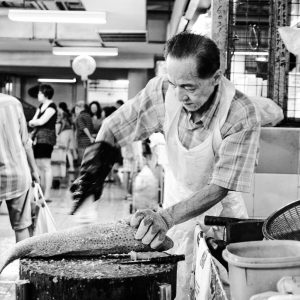Lifelong Education for Aging Productively (LEAP) in Singapore
September 14, 2021

On 10 September 2019, Prudential Singapore organized the ‘Healthy for 100’ roundtable discussion (https://www.straitstimes.com/singapore/turning-silver-into-gold-as-singaporeans-live-longer). The session was moderated by Ms Salma Khalik, (Senior Health Correspondent, The Straits Times). At the dialogue, the team of panellists comprising Dr Amy Khor (Senior Minister of State for Health), Mr Wilf Blackburn (Chief Executive of Prudential Singapore), Associate Professor Lim Wee Shiong (Senior Geriatric Consultant, Tan Tock Seng Hospital), and Ms Rachel Ngo (Deputy Director, Healthy Ageing Division, Health Promotion Board) discussed ageing well, living well, working into old age, and the importance of investing in a healthy lifestyle.
The phrase ‘productive aging’ has been used with increased frequency in the context of Singapore’s increasing elderly population. Productive aging comprises paid work, care giving, volunteering, and other useful activities performed by the elderly to mutually benefit both themselves and society. This differs from the traditional and egocentric concepts of healthy, active, and successful aging that were conventionally used in aging research.
‘Lifelong Education for Aging Productively (LEAP) in Singapore’ is a project running from 2020 to 2023 funded by the Ministry of Education’s Academic Research Fund (Tier 2). The research team of Associate Professor Feng Qiushi, Professor Jean Yeung (NUS Sociology and Centre for Family and Population Research), Associate Professor Liu Haoming (NUS Economics), Assistant Professor Feng Lei (NUS Psychological Medicine), and Dr Tan Teck Kiang (NUS Institute for Applied Learning Sciences & Educational Technology) expand on earlier findings which developed an ecological and life-course framework to study productive aging in order to examine how it is practiced amongst older Singaporean adults. They aim to identify the reasons and interventions that enable these older Singaporeans to continue being productive members of their family, community, and society. A greater focus will be allocated to study older adults who were compelled to continue working due to insufficient financial capital.
Learn more about LEAP here.
